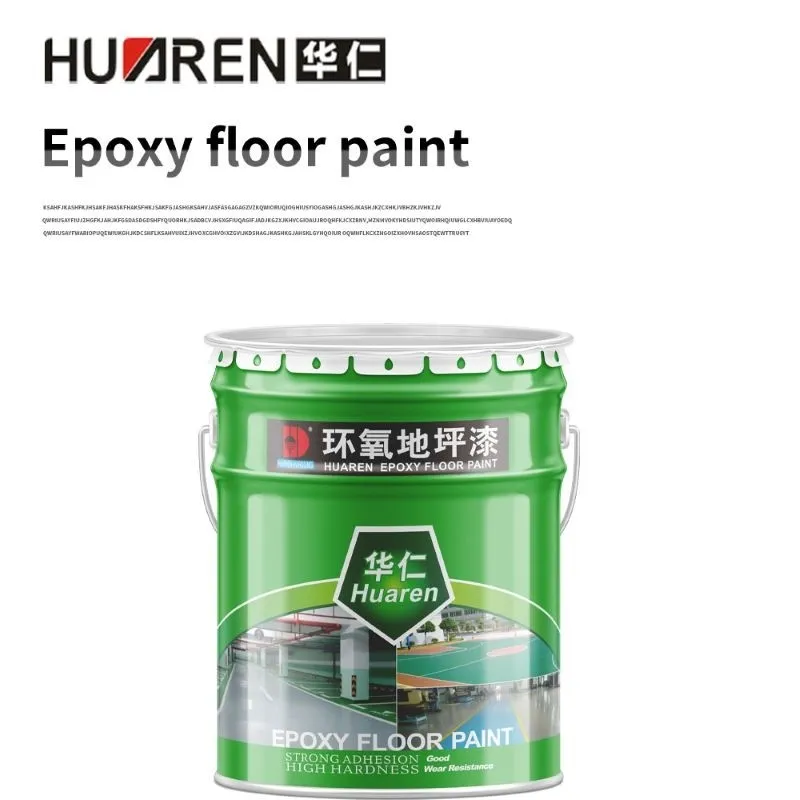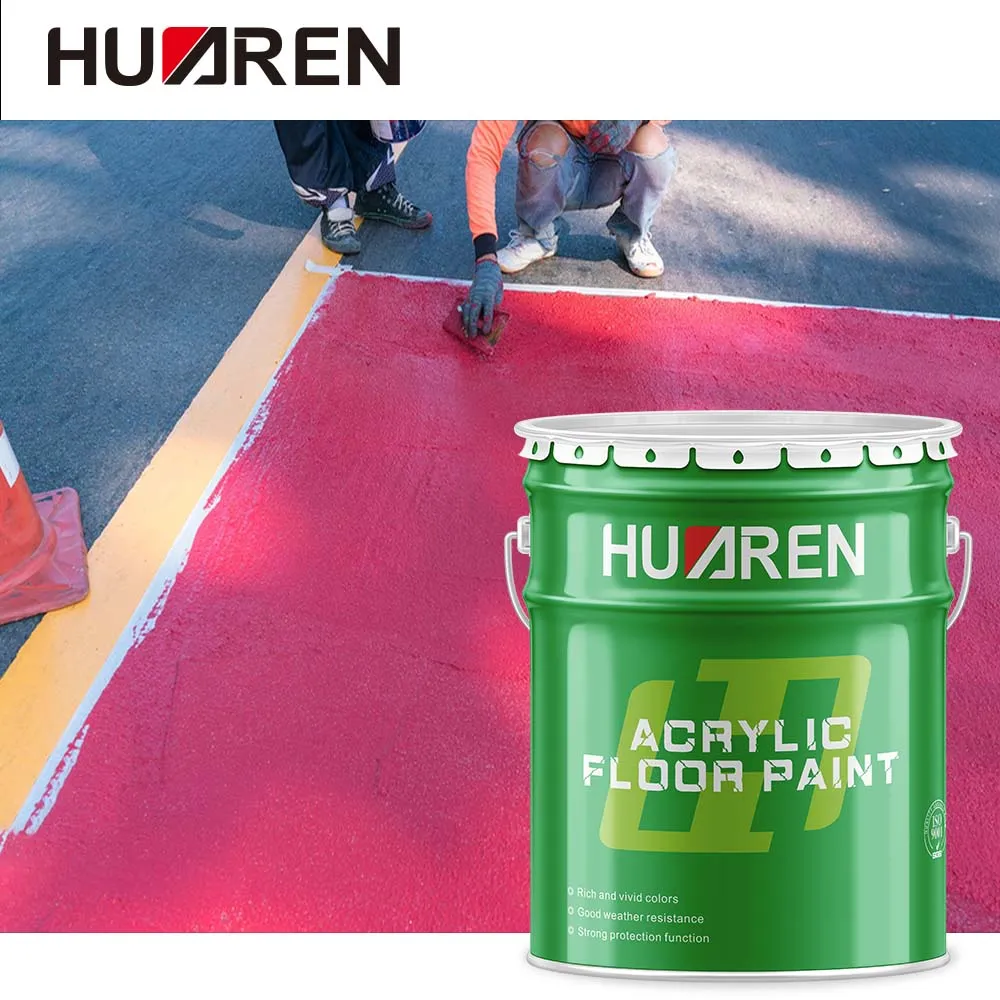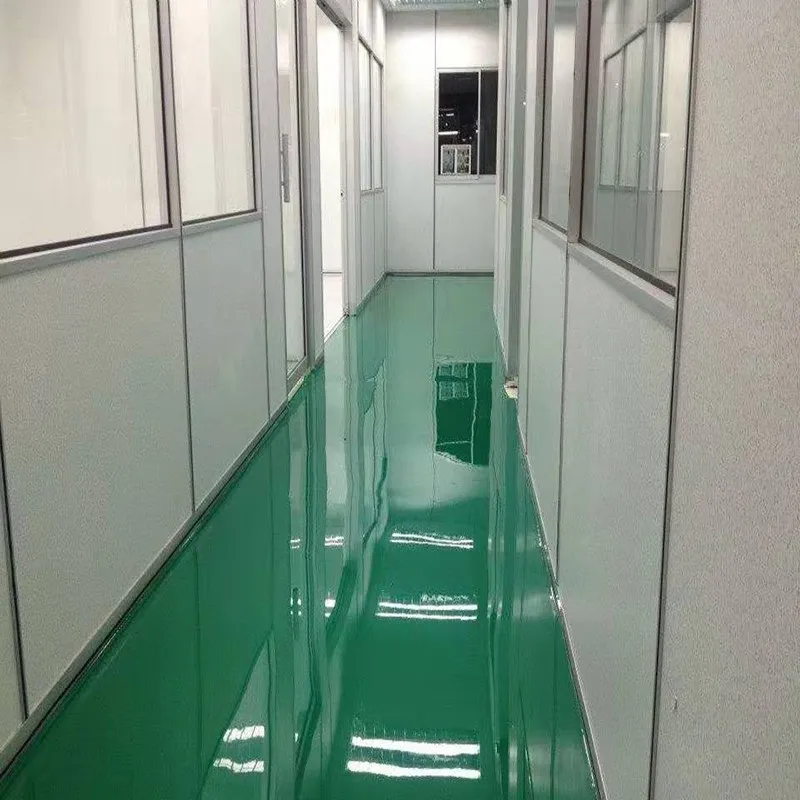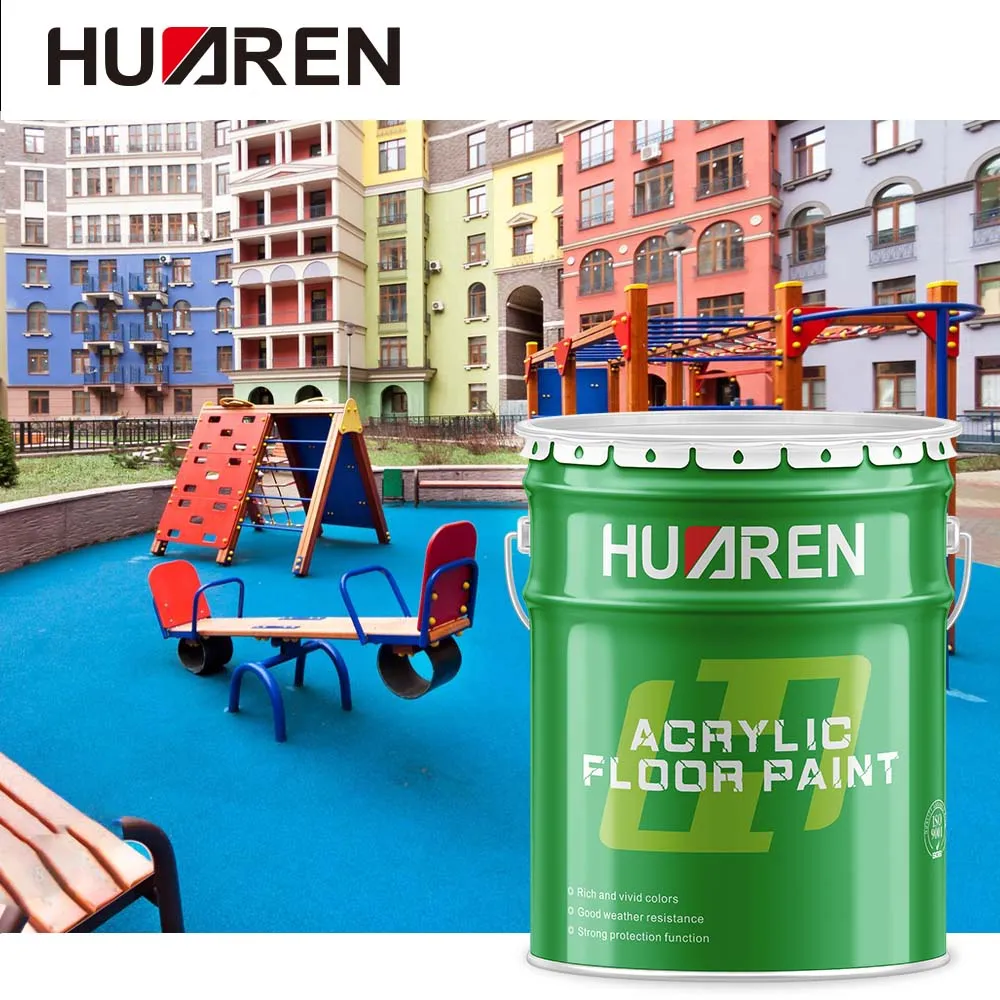When it comes to choosing a coating for floors or walls, epoxy and acrylic coatings are two common and highly regarded choices. Whether it's to protect the surface, prevent wear and tear, or enhance aesthetics, each of these two coatings has unique advantages. However, for those who are looking for ruggedness and durability, it is important to understand the difference between epoxy and acrylic coatings.
This article will take a deep dive into the characteristics, advantages and disadvantages of these two coatings, as well as their actual application scenarios, to help you make an informed choice between the two.
What is epoxy coating?
Epoxy coating is a high-performance coating with epoxy resin as the main ingredient, usually formed by mixing resin and curing agent to form a strong coating. Its notable features are excellent adhesion, chemical resistance and wear resistance, so it is often used in places that require high-strength protection, such as industrial floors, garages, laboratories and workshops.

What are the characteristics and applications of epoxy coatings?
Durability and ruggedness
Epoxy coatings are known for their excellent durability. It can form a hard surface that can withstand the rolling of heavy equipment, the impact of heavy objects and the corrosion of chemicals. Compared to other types of coatings, epoxy resin has higher compressive and tensile strength, making it an ideal choice for industrial and commercial environments.
Adhesion
Epoxy resin coatings have extremely strong adhesion and can adhere firmly to a variety of substrates such as concrete, metal and wood. Its coating can penetrate into the fine pores of concrete to form a strong bond, which enhances the stability and durability of the coating.
Chemical resistance
Epoxy resin coatings have excellent resistance to a variety of chemicals, including oils, acids, bases and solvents. This makes it widely used in places such as chemical plants, laboratories, garages, etc. that are often exposed to corrosive substances.
Abrasion resistance
Due to its high hardness and wear resistance, epoxy resin coatings can withstand frequent friction and trampling without easy wear. This makes it particularly suitable for high-traffic areas such as commercial floors, airports, garages and parking lots.
Water resistance
Epoxy resin coatings have good water-resistant properties and can effectively prevent moisture from penetrating into the substrate. Therefore, it is also widely used in moisture-proof and waterproof floor and wall coatings.
However, epoxy paint also has its limitations. For example, it has weak resistance to UV rays, and long-term exposure to sunlight can cause the coating to yellow, lose gloss, and even chalk. Therefore, epoxy paint is more suitable for indoor use or areas not directly exposed to sunlight.
What is acrylic paint?
Acrylic paint is a water-based paint mainly made of acrylic resin. Compared with epoxy paint, acrylic paint has a wider range of application scenarios, especially in outdoor environments where protection from UV radiation is required.

What are the characteristics and applications of acrylic paint?
UV resistance
One of the most significant advantages of acrylic paint is its excellent UV resistance. It can effectively resist UV radiation in sunlight and prevent the coating from fading, yellowing or chalking. This makes acrylic paint very suitable for outdoor environments such as exterior walls, roofs, sidewalks and parking lots.
Environmental protection and safety
As a water-based paint, acrylic paint has a low VOC (volatile organic compound) content, so it is less harmful to the environment and human health. It has almost no irritating odor during construction and is suitable for home decoration and places with high requirements for environmental friendliness.
Weatherability
Acrylic paints are not only resistant to UV rays, but also withstand wind, rain, temperature changes, and moisture. Its weatherability allows the coating to remain stable in changing climate conditions and is not prone to cracking or peeling.
Aesthetics and decorative effects
Acrylic paints are available in a variety of colors and glosses, which can achieve different decorative effects according to specific needs. Whether it is high gloss, semi-gloss or matte effects, acrylic paints can meet different aesthetic needs while maintaining the vividness and durability of colors.
Drying speed
Acrylic paints dry quickly, usually reaching surface dryness within a few hours. This makes the construction process more efficient, especially in projects that need to be painted and put into use quickly.
Although acrylic paints perform well in outdoor applications, their hardness and abrasion resistance are weaker than epoxy paints. Therefore, acrylic paints are usually used in places that do not need to withstand heavy loads and high-frequency friction.

Epoxy paint vs. acrylic paint: Which is stronger?
The key to deciding whether to use epoxy paint or acrylic paint is to consider the actual application scenario and specific needs. Here is a comparison of the two in several important aspects:
Strongness and durability
In terms of robustness, epoxy coatings are undoubtedly superior. Its high hardness and impact resistance allow it to withstand the pressure of heavy machinery and frequent trampling without cracking or wearing out. Therefore, epoxy coatings are more suitable in industrial and commercial environments. However, in outdoor applications, since epoxy coatings are not UV-resistant, long-term exposure to sunlight may reduce their durability.
In contrast, acrylic coatings excel in UV protection and can maintain the color and gloss of the coating for a long time, but their hardness and wear resistance are weak. Therefore, acrylic coatings are more suitable for outdoor environments or areas that do not need to withstand high-intensity mechanical pressure.
Application scenarios
Epoxy coatings are mainly used in places that require high durability, such as industrial floors, garages, laboratories, and workshops, due to their excellent chemical resistance and wear resistance. At the same time, due to their sensitivity to UV rays, they are more suitable for indoor environments.
Acrylic coatings are widely used in outdoor environments that require UV resistance, such as building exterior walls, roofs, sidewalks, parking lots, etc. In addition, acrylic paint is also a common choice in home decoration due to its environmental friendliness and low VOC content.
Aesthetics
Acrylic paint can meet the decorative effects of different aesthetic needs due to its rich color selection and diverse glossiness. In outdoor environments, acrylic paint can maintain bright colors for a long time and is not easy to fade or yellow.
Although epoxy resin paint also has a variety of color options, the color durability is poor when exposed to sunlight. Therefore, if aesthetics and color retention are priority factors, especially in outdoor environments, acrylic paint may be a better choice.
Construction and maintenance
Acrylic paint is relatively simple to apply and dries quickly, making the application time relatively short. In terms of maintenance, the surface of acrylic paint is easy to clean, and its finish can be maintained with regular sweeping and simple cleaning.
The construction of epoxy resin paint is relatively complicated, usually requiring the mixing of resin and curing agent, and requires construction under certain temperature and humidity conditions. In addition, epoxy resin paint takes a long time to fully cure, and heavy objects or frequent trampling should be avoided during this period.
In summary, although epoxy is more durable than acrylic paint, it does not have UV protection, which means that long-term exposure to sunlight will cause discoloration. Epoxy is generally more suitable for indoor work, while acrylic paint has UV protection, which means it can be applied to any work anywhere.
When choosing a paint, the key is to decide based on the specific application environment and needs. For applications that pursue high strength, chemical resistance and wear resistance, such as industrial floors, garages, etc., epoxy resin paint is undoubtedly a better choice. For outdoor environments that require long-term exposure to sunlight and have high requirements for aesthetics and environmental protection, acrylic paint is a more ideal choice.

Huaren Chemical Industry Co., Ltd. is a well-established manufacturer of industrial coatings and resins, offering reliable and cost-effective solutions for global buyers. With a production capacity exceeding 20,000 tons annually, we provide high-quality products such as waterborne industrial paints, alkyd coatings, and epoxy paints. Our coatings are extensively used in industries like petrochemicals, construction, and machinery. Whether you are seeking bulk purchasing options or discounted prices, Huaren Chemical delivers unmatched value. Partner with us for your coating needs, and explore our promotional offers and tailored solutions. Reach out today to learn more about our products and services!

